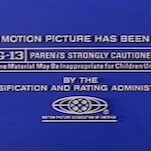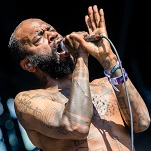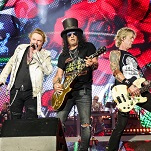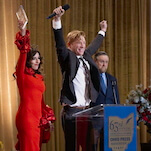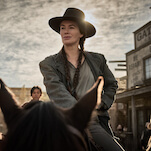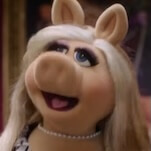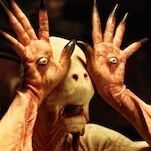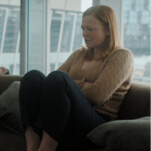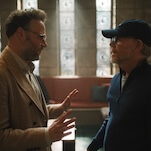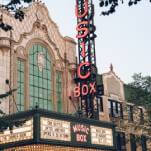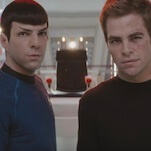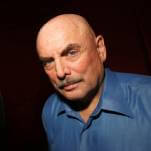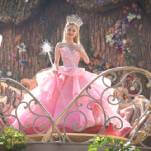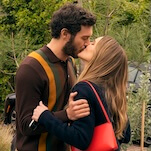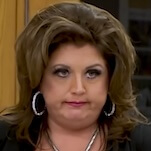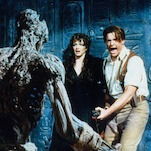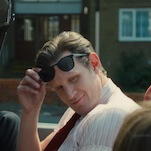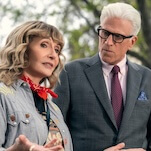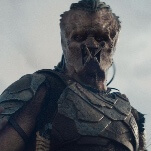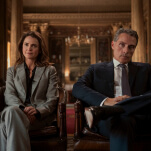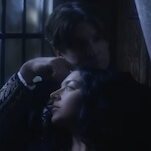Julian is starting to reveal the depths of his learned confusion and its consequences. Whatever strange mysticism he’s been taught about life and death, we now know why he could both murder two people in cold blood and simultaneously be absolutely horrified as it happens: “It wasn’t supposed to hurt.”
That earnest and innocent mindset makes a lot more sense than the disturbed and unpredictable behavior he’s been demonstrating before this. Part of the problem was simply a lack of insight provided to the audience. He was obviously deeply troubled by the deaths and Adam and Bess, yet couldn’t articulate why. Then, Vera showed up and convinced him to lie, giving him some confidence and shoring up the defenses he had dropped with Harry. But being swept into the adult criminal court system was something none of them were ready for. It pierced whatever remaining bravado or faith Julian might have had in his guardians, and understandably so. Vera wants him to keep lying, but he’s tired of the routine. Look where it got him.
For an episode that ended with a tense stalking through a house and a surprising death scene, “Part III” was a more methodical affair than the first two installments, taking its time to show us the fragile emotional state both our detectives are currently inhabiting. If there’s a thematic ground to this episode, it’s only a tiny step removed from the continued overall exploration of how we strive to push away traumas we want to be done with, even as we know they’re not done with us. Here, Heather begrudgingly returns to her past only because it could help others in the present—we see how her hand is forced to a degree, because lord knows Harry isn’t about to open up to Jack in any equivalent way.
Once again, however, the stilted and uncomfortable exchanges between the two men form some of the more affecting little moments of the season. The opening conversation over late-night coffee is a beautifully realized scene, two awkward and lonely men, the one trying and failing to reconnect with his old friend, the other smiling politely and keeping his distance. While the later interaction at the Rotary Club party was a necessary puncturing of the tension—it was rapidly approaching critical levels of strain—it also meant a break from getting to see Bill Pullman and Tracy Letts do such strong, nervy work together. I doubt this means Jack and Harry will start really opening up (not yet, anyway), but here’s hoping any attempts at intimacy can maintain the charge of their alienation.
And the relationship between Heather and Marin, shown in flashbacks, is filling out in a way that adds real pathos to the novice detective’s lingering sense of guilt and loss. There have been entire movies made about the pain of losing your high-school best friend, and that’s just when you drift apart the way most of us do. For Heather, she watched the person she was closest to in the world—not just emotionally, but physically as well—getting pushed away by her family and slowly embraced by a new one. And seeing the scenes of their push-and-pull, as she gets angry at Marin sharing private details of her life with the Mosswood commune, yet still dropping everything to bring her friend home and care for her, carry a weight that works better than the usual “here’s a flashback so you know these people matter to each other” shortcut. The flashbacks still carry a generic sepia-toned filter of The Past®, but they’re staged and performed so well that they overcome the rote visual aesthetic.
Also, the subplot overlaps in a meaningful way here, as we learn that Julian is most likely Marin’s son, not Vera’s. After the encounter with Marin’s mother (in which we see the woman has lost none of the lacerating attitude that presumably estranged her from her daughter in the first place), Heather finds the book in which her old friend underlined or circled every appearance of the name “Julian.” It’s somewhat of a clunky device for introducing this plot twist (who would feel the need to circle the name every time?) but ties these threads together in an engaging way. There’s a greater impetus for Heather Novack to reexamine her past, now.
The most intriguing development here is the possibility that Vera might stop seeing Harry as the enemy, and vice versa. Whereas before Vera was the scornful cult leader doing her best to lead Harry down the wrong paths in his investigation (or at least keep everything secret and stymie his efforts), now something has happened that neither of them want, and they’re warily sizing each other up—her seeing if there’s a way he might be useful after all, and him trying to insinuate himself into her good graces, if for no other reason than it will make his work that much easier. They both want Julian out of the adult criminal system, and Vera, in studying his past work on the Cora Tennetti case, sees someone who could potentially help. Harry, as always, just wants to get to the truth.
And the truth just got simultaneously a little more exposed and a lot harder to suss out. When Harry and Heather confront the town’s obstetrician about births out at Mosswood, he doesn’t just equivocate and try to avoid giving an answer. He kills himself, slicing his own neck open with a scalpel, which frankly seems like overkill for not wanting to find paperwork, unless you’ve got something pretty major to hide. And given there’s a miniature version of the rock monolith hiding up in his attic—and the fact that this is The Sinner, where there’s no such thing as a mystery that ends up being no big deal—major revelations are undoubtedly on the horizon.
Stray observations:
- “When a boy that young kills, it’s really never just his fault.”
- Montages of police processing often feel perfunctory, but seeing little Julian get entered into the system and sent to his bunk was effectively unsettling.
- That prosecutor really wants to charge a 13-year-old kid with a plea deal that could still end in life imprisonment? That’s…a little fucked up, to put it mildly.
- It’ll be interesting to see who breaks first when it comes to revealing to us just what’s been going on at Mosswood—Julian to Harry (or another adult), or the show to its audience, via some good old-fashioned detective work by Heather and Harry, or possibly another means.
- Harry, when his old high-school alum Caroline tells him she understood why he ran off: “I didn’t run off. I left.”
- Carrie Coon freaking out in front of a giant rock automatically improves any show by, like, 15 percent.
